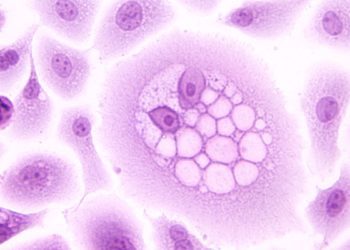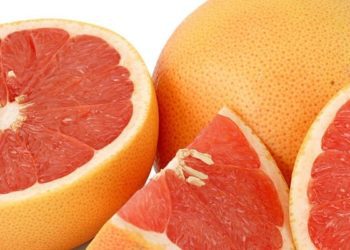Quadrivalent HPV vaccine in young women [Classics Series]
Image: PD
1. Prophylactic use of a quadrivalent vaccine against HPV strains 6, 11, 16, and 18 significantly reduced the incidence of HPV infection and HPV-associated genital disease 30 months after vaccination
2. No significant adverse effects were observed to be due to the vaccinations
Original date of publication: April 7, 2005
Study Rundown: Human papillomavirus (HPV) infection causes cervical cancer in women worldwide, and while routine screening with Pap smears and close follow up of pre-cancerous lesions have reduced the risk of cervical cancer, it has not eliminated it. This study looked at the efficacy of a quadrivalent vaccine in reducing the incidence of HPV infection due to the four most common strains: 6, 11, 16, and 18. These four strains have been linked with 70% of cervical cancers and 90% of genital warts. The vaccine is comprised of three injections months apart from each other and the participants were followed over the course of 36 months. In summary, the incidence of HPV infection and HPV-associated diseases were significanty lower in the vaccinated group when compared with the unvaccinated group three years post-vaccination (89% efficacy difference, 95%CI 73-94%, p<0.0001). These results are significant given that the vaccine may prevent infection and consequently reduce the prevalence of HPV-associated diseases. However, the study only followed the women for 3 years post-vaccination and cannot demonstrate the vaccine’s long-term efficacy.
Click to read the study in The Lancet
In-Depth [randomized, controlled study]: Originally published in The Lancet in 2005, this study was a phase II randomized, multicenter, double-blind placebo-controlled study that randomized 552 women to either receive the quadrivalent HPV vaccine or a placebo injection in 3 doses, with the 2nd and 3rd doses administered at 2 and 6 months, respectively, after the 1st dose. All participants were between the ages of 16-23 years of age, not pregnant, had no history of abnormal Pap smears, and have had four or fewer male sex partners in their lifetime. Women with history of cleared HPV infection were included in the study. Patients were followed for 36 months and had gynecological exams that included a Papanicolau test and HPV cervical swab testing on day 1, and at 7, 12, 24, and 36 months from the initiation of the study. The primary endpoint was the difference in incidence of HPV infection and/or HPV-associated genital disease. Under the modified intention-to-treat analysis, the incidence of HPV infection and associated disease was significantly lower in the vaccinated group (6 vs. 48 participants, 89% efficacy difference, 95%CI 73-94%, p<0.0001). Notably, the incidence of HPV infections, HPV-associated disease (e.g., condylomata acuminata, vulvar intraepithelial neoplasia, vaginal intraepithelial neoplasia), and cervical intraepithelial neoplasia were all significantly lower in vaccinated patients compared to those receiving placebo.
All women who completed the vaccination regimen mounted an antibody response following the last dose of the vaccine, and a majority (76-100%) maintained seropositivity at 36 months (percentages differ for each HPV type). Adverse effects were of mild and moderate severity with the most common being pain at the site of injection and a headache following the injection. The study suggests that this quadrivalent HPV vaccine is effective at preventing HPV infections due to types 6, 11, 16, and 18 for at least three years post-vaccination.
© 2012-2014 2minutemedicine.com. All rights reserved. No works may be reproduced without expressed written consent from 2minutemedicine.com. Disclaimer: We present factual information directly from peer reviewed medical journals. No post should be construed as medical advice and is not intended as such by the authors, editors, staff or by 2minutemedicine.com. PLEASE SEE A HEALTHCARE PROVIDER IN YOUR AREA IF YOU SEEK MEDICAL ADVICE OF ANY SORT.







